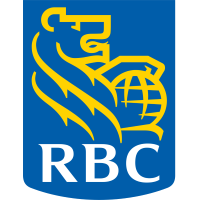
Royal Bank of Canada
TSX:RY


Utilize notes to systematically review your investment decisions. By reflecting on past outcomes, you can discern effective strategies and identify those that underperformed. This continuous feedback loop enables you to adapt and refine your approach, optimizing for future success.
Each note serves as a learning point, offering insights into your decision-making processes. Over time, you'll accumulate a personalized database of knowledge, enhancing your ability to make informed decisions quickly and effectively.
With a comprehensive record of your investment history at your fingertips, you can compare current opportunities against past experiences. This not only bolsters your confidence but also ensures that each decision is grounded in a well-documented rationale.
Do you really want to delete this note?
This action cannot be undone.

| 52 Week Range |
117.32
174.76
|
| Price Target |
|
We'll email you a reminder when the closing price reaches CAD.
Choose the stock you wish to monitor with a price alert.
This alert will be permanently deleted.
 Royal Bank of Canada
Royal Bank of Canada
 Royal Bank of Canada
Net Income (Common)
Royal Bank of Canada
Net Income (Common)
Royal Bank of Canada
Net Income (Common) Peer Comparison
Competitors Analysis
Latest Figures & CAGR of Competitors

| Company | Net Income (Common) | CAGR 3Y | CAGR 5Y | CAGR 10Y | ||
|---|---|---|---|---|---|---|

|
Royal Bank of Canada
TSX:RY
|
Net Income (Common)
CA$15.8B
|
CAGR 3-Years
2%
|
CAGR 5-Years
5%
|
CAGR 10-Years
6%
|
|

|
Canadian Imperial Bank of Commerce
TSX:CM
|
Net Income (Common)
CA$6.5B
|
CAGR 3-Years
3%
|
CAGR 5-Years
5%
|
CAGR 10-Years
7%
|
|

|
Toronto-Dominion Bank
TSX:TD
|
Net Income (Common)
CA$7.6B
|
CAGR 3-Years
-21%
|
CAGR 5-Years
-8%
|
CAGR 10-Years
0%
|
|

|
Bank of Montreal
TSX:BMO
|
Net Income (Common)
CA$6.3B
|
CAGR 3-Years
-3%
|
CAGR 5-Years
1%
|
CAGR 10-Years
4%
|
|

|
Bank of Nova Scotia
TSX:BNS
|
Net Income (Common)
CA$7B
|
CAGR 3-Years
-7%
|
CAGR 5-Years
-3%
|
CAGR 10-Years
0%
|
|

|
National Bank of Canada
TSX:NA
|
Net Income (Common)
CA$3.5B
|
CAGR 3-Years
8%
|
CAGR 5-Years
11%
|
CAGR 10-Years
9%
|
|
Royal Bank of Canada
Glance View
Royal Bank of Canada (RBC) stands as a cornerstone of the Canadian banking landscape and is one of the largest financial institutions in North America. Founded in 1864, RBC has not only withstood the tides of economic change but has also evolved into a global player with a diversified portfolio that spans personal and commercial banking, wealth management, and capital markets. The bank's commitment to innovation and customer service has solidified its reputation as a trusted partner for individuals and businesses alike. Through a mix of strategic acquisitions and organic growth, RBC has expanded its footprint beyond Canada, making significant inroads into the United States and other international markets while maintaining a strong foundation in its home country. Investors looking at RBC will find a company boasting robust financial metrics, including a strong balance sheet and consistent revenue growth. The bank's disciplined approach to risk management and its significant capital reserves have positioned it well to navigate economic fluctuations. Dividends are an attractive aspect of RBC's value proposition, as the bank has a history of returning capital to shareholders through regular dividend payments and share buybacks. With a strategic focus on digital transformation and sustainability, RBC aims to remain at the forefront of the financial services industry. For investors, RBC represents not only a stable investment opportunity but also a dynamic institution ready to adapt to future challenges and market opportunities.

See Also
What is Royal Bank of Canada's Net Income (Common)?
Net Income (Common)
15.8B
CAD
Based on the financial report for Jul 31, 2024, Royal Bank of Canada's Net Income (Common) amounts to 15.8B CAD.
What is Royal Bank of Canada's Net Income (Common) growth rate?
Net Income (Common) CAGR 10Y
6%
Over the last year, the Net Income (Common) growth was 10%. The average annual Net Income (Common) growth rates for Royal Bank of Canada have been 2% over the past three years , 5% over the past five years , and 6% over the past ten years .


 You don't have any saved screeners yet
You don't have any saved screeners yet
